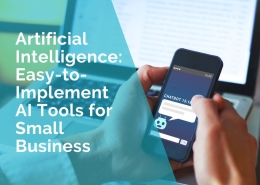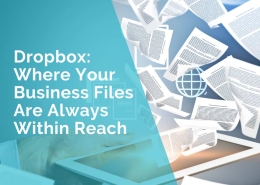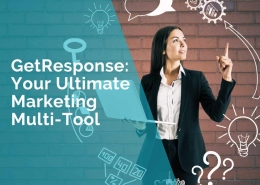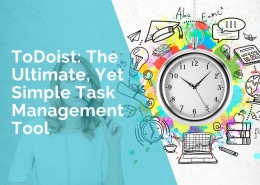How to Ensure Your Ecommerce Business is Buyer-Ready
Ecommerce is on the rise, and there’s absolutely no doubt about it.
Current projections predict the industry to reach a market volume of $4,230,885 million by 2025, which is a clear signal to anyone in the industry that it’s time to get serious about online retail.
But the thing is, some entrepreneurs may be looking for ways to sell their already developed businesses. And, with ecommerce, the process may seem confusing and overly complicated. But it doesn’t have to be. This guide aims to give you an overview of all the info and preparation you need to ensure your ecommerce business is buyer-ready.
So, whether you’re trying to make a profitable exit or just starting your brand and want to know everything it will take to sell it in the future, these are the steps you need to take to get the absolute most out of all your hard work.
Why Sell Your Ecommerce Business
You may be wondering: if ecommerce is only going to grow in the years to come, why would anyone want to sell their business? Well, there are several reasons why someone might consider selling.
First and foremost, entrepreneurs might consider selling an ecommerce business for financial reasons. They might be looking to free up the funds they invested into the project or looking to collect their profit.
Alternatively, some business owners simply decide to sell because they’re ready to move on. Some might already have a new project they’d like to commit their time to. Others might be ready to retire and reap the fruits of their hard labour.
And, finally, some businesses look to sales as the solution to growth. Sometimes, the demands of scaling can become overwhelming, leading owners to consider selling. For those exploring such options, resources like business for sale can provide valuable insights into the process
In ecommerce, as in any other business venture, an increase in sales doesn’t necessarily have to be a good thing. Sometimes, the demands of catering to an expanding base of customers take too much of a toll on teams. It can mean degradation in service or product quality and, consequently, bad news for the brand. In these cases, an experienced buyer may be able to come in with the required know-how and resources to ensure the longevity of the brand and the long-term profitability of the business.
How to Calculate the Value of Your Ecommerce Business
So, if you’ve decided that selling is the best option for you, you might be wondering: how exactly do you determine the asking price for all the hard work you’ve put into building up your brand?
And the initial answer is simple: you need to determine your net income.
If the number you end up with is less than $10 million, then the valuation method you’ll most likely use will be the Seller’s Discretionary Earnings method. This method subtracts the cost of goods sold and operating expenses from the gross revenue. Then, if the business is owner-operated, it adds owner compensation back into earnings.
However, if your business’ net income exceeds $10 million, the more likely valuation method is going to be Earnings Before Interest, Taxation, Depreciation, and Amortization (EBITDA for short). This method subtracts expenses from the gross revenue, then adds back in depreciation and amortization.
The tricky part with valuing an ecommerce brand is finding the Earnings Multiple, which is, basically, a way to predict the max price at which the business can be sold. This takes a wide range of factors into consideration (including web financials, traffic, operations, customer base, niche, and product-related ones).
Therefore, the best way to get the most out of your business is to get in touch with an experienced M&A advisor who will know how to extract the maximum value for the seller without driving the price so high that it becomes unattractive to buyers.
Making Sure Your Ecommerce Business Is Buyer-Ready
Now you have a solid idea of why selling your ecommerce brand may be a good choice for you. And you know how much you can expect to get out of your business. So how do you ensure that your business is ready for buyers?
Well, there are several steps you’ll need to take. Each of these will contribute to a smooth transition and a positive experience for you, your potential buyer, and your company’s loyal customers.
Collect Relevant Data
Before you even start the evaluation process, the best thing you can do is collect all the relevant data about your ecommerce store.
For one, information about your site’s traffic and KPIs will be an essential part of your sales prospectus. This is the document you will have to put together when selling and which will allow potential buyers to evaluate whether your ecommerce brand is the right fit for them.
But in addition to using traffic and analytical info to attract buyers, you have to remember that the sales process is not something that happens overnight. Therefore, having an easy way to overview and compare analytics throughout the sales process will ensure that your business continually delivers the required performance level to bring you the profits you’re after.
Just think about it. No matter how strong a brand may seem, no one is going to want to buy it if its sales start going downhill as soon as you list it for sale. For this reason, even throughout the sales process, you will have to look for ways to advance and grow your business, boost conversions, and attract new audiences.
Clean Up Your Website
Another big task you’ll have to take care of before listing your ecommerce brand for sale is cleaning up your website. As it is the main asset you’re selling, your site needs not just to look crisp, but it has to function flawlessly to attract buyers.
On the whole, you should approach this task with two elements in mind.
For one, think about the design and how it looks. A beautiful look goes a long way and not just in terms of aesthetic appeal. Several studies have found a direct link between web design and conversion rates, testifying to the fact that investing in your site’s appearance is always a good idea.
Secondly, consider the user experience. An intuitive site structure, functional navigation, and a consumer-oriented purchasing process all contribute to boosting sales in your store. And, seeing how prospective buyers want to purchase a business that’s proven to work, brushing up the UX features in your ecommerce store can be another value-boosting element that will pay off in the long term.
Organize Your Inventory
As for the physical products sold in your webshop, you’ll have to do some maintenance there as well.
Chances are, your ecommerce business will come with some inventory or products, which means it’s essential that it’s well-organized and ready for a takeover. However, if you plan on removing products from your site, consider whether your product categories need a bit of a refresh. After all, no buyer is going to go for an ecommerce store with 80% of its marketed items listed as “sold out.”
Moreover, when it comes to your product pages, do your best to optimize them as much as possible. This might mean taking new product photos and writing descriptions. But, again, the extra work will definitely be worth it, seeing how a user-friendly store inevitably outperforms that which is cumbersome to navigate and shop from.
Get Your Finances & Contracts Sorted
Potential buyers will spend a lot of time assessing the different aspects of your store. But, without a doubt, the majority of their time and attention will be spent reviewing your finances.
For this reason, it is essential that your finances are as ordered and transparent as possible.
If you don’t have one already, it might be time to hire an accountant who will know how to prepare the statements and documents you’ll need when you sell. Moreover, they’ll keep everything up to date, so you won’t have to spend time and effort going through your finances when you’re ready to list your business.
In addition to financial reports, don’t forget to give some thought to your business’ contracts. These should include those with your employees as well as those with your suppliers.
A potential buyer will inevitably want to know the financial obligations they’re taking on as they buy your store, which is why they must have a complete picture of every aspect of the business. And having everything ready will speed the entire sales process up, ensuring you get to ask for the full worth of your brand.
Prepare for the Transition
Finally, as you look for ways to ensure your ecommerce business is buyer-ready, you have to understand that selling your brand probably won’t be a clean cut. Even after you’ve made a deal with a buyer, you should still do your best to ensure that the company has every chance of thriving – with or without you on board.
To do this, you have to prepare the business and your team for a seamless transition.
In addition to putting together a standard operating procedures document that the new owners can consult whenever needed, don’t hesitate to also collect and prepare customer data. Even something as simple as segmenting your customers, removing inactive contacts, and reviewing the information available in your CRM will help the future buyer start selling as soon as they’ve acquired your store.
Moreover, some customer data may also be used as a selling point, especially if you have a large base of newsletter subscribers, a strong following on social media, or even a well-developed referral program.
Takeaways
As you can see, there’s considerably more to selling an ecommerce business than putting up a listing. To ensure that your brand is buyer-ready, you have to take several steps. Not just so that you get the most out of the sale. But also so that your company has a chance of growing and thriving after you’ve left it.
To ensure that you are free to move on to new projects after the sale, remember that preparing for an exit is not something you start doing when you’re ready to sell. Instead, your chosen exit strategy must be a part of your business plan from the very beginnings of your brand. Fortunately, the steps we’ve covered here will definitely help you keep your focus on the things that matter when attracting buyers. Apply them early on in the process, and you’ll have everything in place when you’re ready to move on.
But, if you’re late to the party, don’t despair. You can still get everything sorted. Just make sure you pay attention to the details and continue working on your ecommerce store’s performance while you wait for a deal. That way, you’re sure to get the absolute most out of the sale, with the same applying to your buyer and the customers who have made your brand what it is today.
















